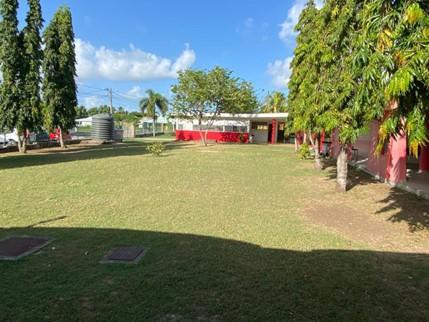
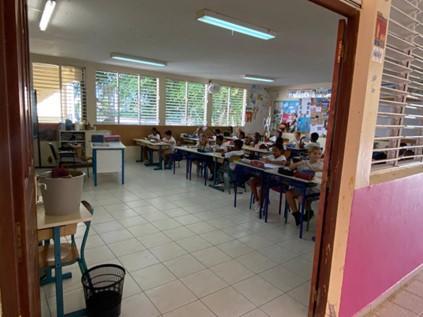
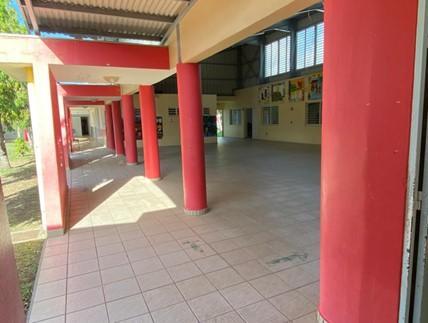
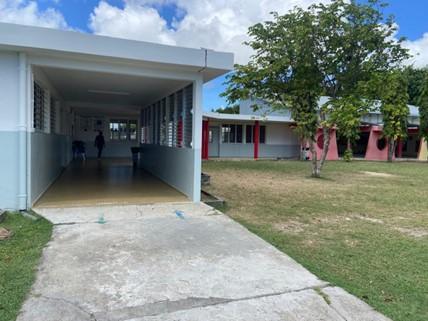
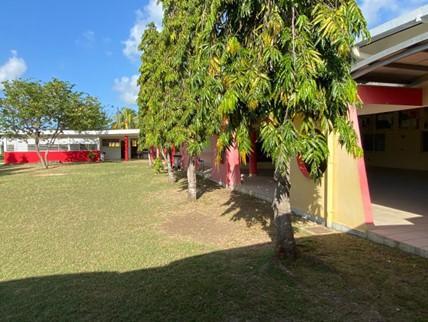
Presentation of the Bois de Vipart Elementary School
Nestled in a green setting in the countryside, the Bois de Vipart Elementary School offers a calm, peaceful, and safe environment that is particularly conducive to learning. Located in the hamlet of “Bois de Vipart” in the municipality of Saint-François, about 12 km from the city center, it is on the border of Sainte-Anne, just across the street from 27 Avril 1848.
Founded on January 23, 1970, the school initially welcomed preschool and elementary school classes. Since the construction of the neighboring preschool in Sainte-Anne, it has been exclusively dedicated to elementary school classes.
A privileged living environment
Surrounded by nature, the school enjoys a green setting, far from the hustle and bustle of the city, which is greatly appreciated by both children and parents. All the buildings are on one level, promoting accessibility and conviviality. The two spacious, grass-covered playgrounds and the cafeteria offer students pleasant, well-designed spaces for their daily well-being.
A dynamic school
With six classes ranging from first to fifth grade, the school has 136 students, which allows it to maintain a family-like and caring atmosphere. Despite its modest size, the school stands out for its commitment to numerous educational, cultural, scientific, and artistic projects designed to spark students' curiosity and nurture their desire to learn.
Class distribution:
• First grade (CP - 24 students)
• First grade / Second grade (CP/ CE1 - 22 students)
• Second grade 1/ Second grade 2 (CE1/CE2 - 20 students
• Second grade 2 (CE2 - 22 students)
• Fourth grade (CM1 - 24 students)
• Middle school 2 (CM2 - 24 students)
A dedicated teaching team
The school relies on a close-knit and committed team:
• 6 teachers, including the Principal and a Master Trainer
• 1 substitute teacher (TR), providing administrative and training support
• 3 AESH accompanying students with disabilities
• 3 municipal employees responsible for maintaining the premises
• 1 young person on a civic contract, actively participating in school life
Opening hours:
The school welcomes students from Monday to Friday at the following times:
Morning: 8:00 a.m. – 11:00 a.m.
Afternoon: 1:30 p.m. – 4:00 p.m.